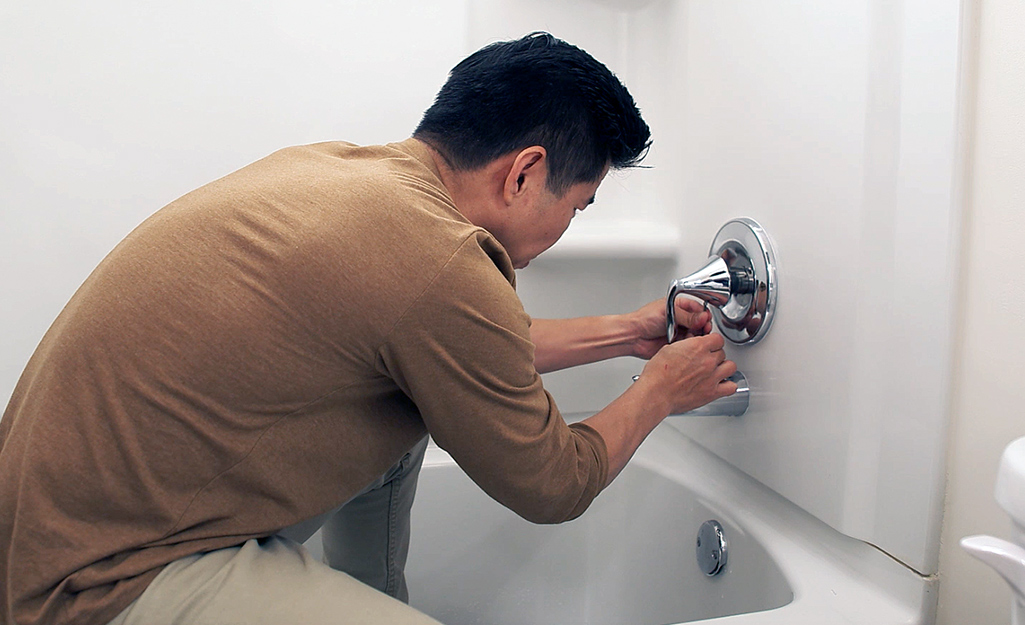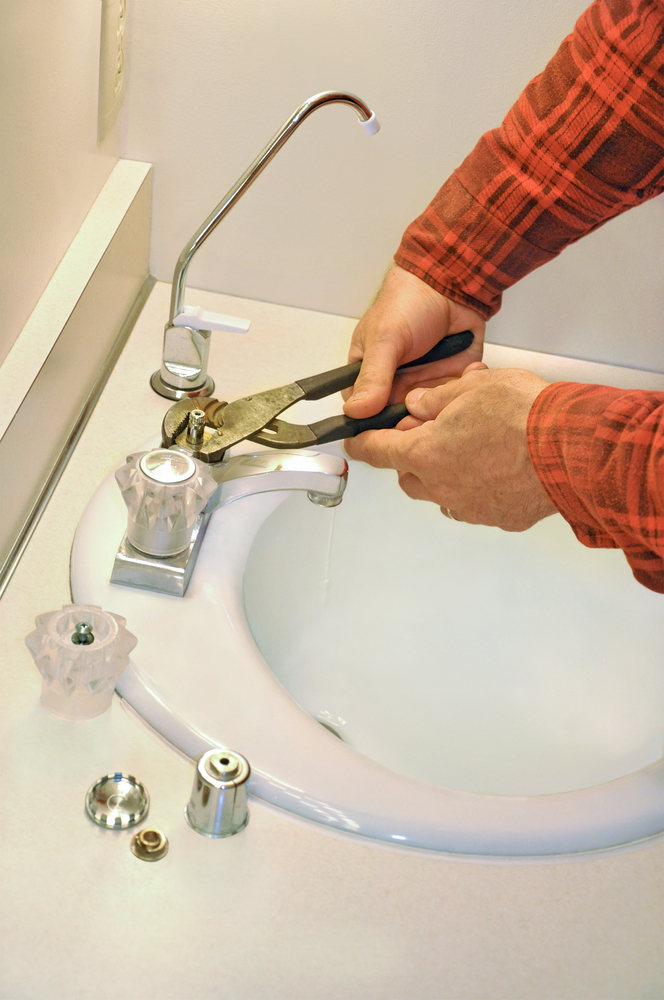Our Motives Behind Addressing a Dripping Faucet
Our Motives Behind Addressing a Dripping Faucet
Blog Article
Right here below you can find a good deal of awesome details relating to Why Are My Faucets Dripping (And Can I Fix It Myself)?.

Leaking faucets may feel like a small inconvenience, however their influence surpasses simply the annoyance of the sound. From wasting water to incurring unnecessary financial costs and health risks, ignoring a dripping tap can bring about numerous effects. In this post, we'll look into why it's critical to resolve this typical home issue without delay and properly.
Waste of Water
Environmental Influence
Leaking faucets add substantially to water waste. According to the Environmental Protection Agency (EPA), a solitary faucet dripping at one drip per secondly can waste more than 3,000 gallons of water annually. This not only pressures water resources yet also influences communities and wild animals based on them.
Step-by-Step Overview to Fixing a Dripping Tap
Devices Required
Prior to trying to repair a leaking tap, gather the needed devices, including a flexible wrench, screwdrivers, substitute parts (such as washers or cartridges), and plumber's tape.
Typical Tap Issues and Their Solutions
Recognize the type of faucet and the particular problem creating the drip. Usual troubles consist of worn-out washers, corroded valve seats, or defective O-rings. Describe manufacturer directions or online tutorials for detailed guidance on repairs.
Financial Expenses
Increased Water Costs
Beyond the ecological impact, trickling faucets can blow up water expenses substantially. The collected wastage in time converts into greater energy expenses, which might have been stayed clear of with timely repair services.
Possible Building Damage
Furthermore, long term trickling can lead to damage to components and surface areas bordering the faucet. Water accumulation can cause staining, rust, and even architectural issues if left ignored, leading to extra repair service expenses.
Health and wellness Worries
Mold And Mildew and Mildew Growth
The consistent visibility of dampness from a trickling tap develops an ideal setting for mold and mildew and mold development. These fungi not only compromise interior air top quality yet also posture health and wellness dangers, particularly for people with breathing problems or allergies.
Waterborne Diseases
Stationary water in trickling faucets can come to be a breeding place for microorganisms and various other pathogens, raising the danger of waterborne illness. Contaminants such as Legionella germs prosper in stationary water, potentially resulting in severe illnesses when consumed or inhaled.
Do it yourself vs. Expert Fixing
Benefits and drawbacks of Do It Yourself Repair
While some may attempt to repair a dripping faucet themselves, DIY repairs come with their own set of challenges. Without proper knowledge and devices, do it yourself efforts can intensify the problem or cause incomplete repair work, prolonging the issue.
Benefits of Employing a Professional Plumber
Employing a specialist plumber makes sure that the underlying cause of the leaking faucet is dealt with effectively. Plumbings possess the proficiency and tools to detect and repair faucet issues efficiently, saving time and decreasing the risk of additional damages.
Ecological Duty
Individual Contribution to Conservation
Taking obligation for dealing with dripping faucets aligns with wider efforts toward water conservation and environmental sustainability. Every person's activities jointly make a considerable impact on protecting valuable resources.
Sustainable Living Practices
By focusing on punctual fixings and embracing water-saving behaviors, individuals add to lasting living techniques that profit both present and future generations.
Safety nets
Routine Upkeep Tips
To avoid leaking faucets, perform routine upkeep such as cleansing aerators, evaluating for leaks, and replacing damaged components immediately. Furthermore, consider mounting water-saving gadgets or upgrading to extra effective fixtures.
Importance of Prompt Services
Resolving leaking faucets as quickly as they're noticed stops further water waste and prospective damage, ultimately conserving both water and cash in the future.
Influence On Home Value
Assumption of Well-Maintained Residential Or Commercial Property
Keeping a residential property in good condition, consisting of dealing with upkeep concerns like trickling taps, improves its viewed worth and charm amongst potential customers or renters.
Impact on Resale Value
Qualities with properly maintained plumbing components, consisting of taps, command higher resale values in the real estate market. Dealing with leaking taps can add to a favorable impact during home inspections and arrangements.
Conclusion
Resolving a leaking faucet goes beyond simple convenience; it's a necessary action toward conserving water, minimizing economic prices, and guarding health and wellness and building. Whether through DIY repair services or professional help, taking action to fix dripping faucets is a tiny yet impactful way to promote responsible stewardship of sources and contribute to a healthier, more lasting future.
How to Fix a Leaky Faucet: Step-by-Step Repair Guide
A leaky faucet may seem like a simple annoyance, but if it's not fixed promptly, that leak could cost hundreds to potentially thousands. From water damage to mold, mildew, and high water bills, even a tiny leak can be catastrophic if left unattended. Damage like this can even affect the overall value of your home, so it's important to take the right approach for leaky faucet repair. You may need the help of a plumber in some cases, but we've got a few tips you can try on how to fix a leaky faucet before calling the pros.
Four Faucet Types
When you're learning how to fix a leaky faucet, the first step is knowing what kind of faucet you're working with! There are four common types.
Cartridge Faucets
Cartridge faucets come in one- or two-handled varieties. In one-handled cartridge faucets, hot and cold water combines in a single cartridge. In the two-handled versions, hot and cold water are controlled separately and mixed in the faucet.
Ball Faucets
Ball faucets have a single lever you push up and down to adjust the pressure and rotate to change the temperature. A slotted metal ball controls the amount of water allowed into the spout.
Compression Washer Faucets
They're the oldest type of faucet, but they're still used in many homes — especially older ones. Compression faucets have two separate handles that, when turned, raise or lower the washer that seals a water valve. This valve stops water from flowing through the faucet when it is turned off.
Disc Faucets
Disc faucets rarely need to be repaired due to their maintenance-free design. The water flow is controlled by two discs — the upper one raises and lowers against a fixed lower disc, creating a watertight seal. If your disc faucet starts leaking, you may need to replace the seals or clean residue buildup from the inlets.
Fixing a Leaky Faucet
Step 1: Turn Off the Water
Whether you're learning how to fix a leaky bathtub faucet or how to fix a leaky kitchen faucet, always turn off the water supply to your working area when you're fixing a leak. The last thing you want is a flood added to your list of things to fix.
Look for the shutoff valves below your sink or around the tub and turn them clockwise to stop the water flow. If your faucet doesn't have shutoff valves, you may need to turn off the water for the whole house. Check to make sure it's off by turning the faucet on. If nothing comes out, you're ready to start the repair.
Step 2: Take Apart the Faucet
How you disassemble your faucet depends on the type of fixture you have. You can use a flathead screwdriver to remove the caps on top of the handle or handles for cartridge and compression faucets. Inside, you should see handle screws. Unscrew these with a screwdriver to remove the handle.
Disc- and ball-style faucets will typically have an inlet screw near the handle, and removing that will reveal the interior of the faucet.
Detach the Valve Stem
For cartridge- and compression-style faucets, you'll see the inner valve stem or cartridge once you remove the faucet handles. If you have a compression faucet, unscrew the brass valve stem. If you have a cartridge faucet, pull out the cartridge. If your cartridge has been in place for a while, it may require some tools or extra force to remove it due to mineral deposits.
Examine and Replace Parts
Once you've removed the parts, check them out to confirm what needs to be replaced. You may see corroded rubber washers, O-rings, stems, or cartridges. On a ball-style faucet, check the seats and springs for damage.
If you need to repair a leaky disc faucet, check the inlet and seals on the lower disc.
Once you determine what parts must be replaced, visit your local hardware store. Bring the damaged parts with you to ensure you can purchase the correct components to replace them.
Clean Valves and Faucet Cavity
If you've removed a stem or cartridge, you may notice mineral buildup in the faucet's threads. Use white vinegar to clean the valve seat by soaking it for a few minutes, then scrub it away with a soft toothbrush and rinse with warm water. You can also clean the interior of the faucet in the same way.
Reassemble the Faucet
Once your faucet is cleaned and the required parts have been replaced, it's time to reassemble it. Put the pieces back together and slowly turn the water supply back on. Doing this slowly is crucial because too much initial water pressure can damage the new hardware you've just installed.
https://homewarranty.firstam.com/blog/how-to-fix-leaky-faucet

We had been shown that editorial on Why It's Important to Fix Leaky Faucets through a good friend on our other web property. Feel free to take a moment to distribute this post if you enjoyed reading it. Many thanks for your time. Come back soon.
Report this page